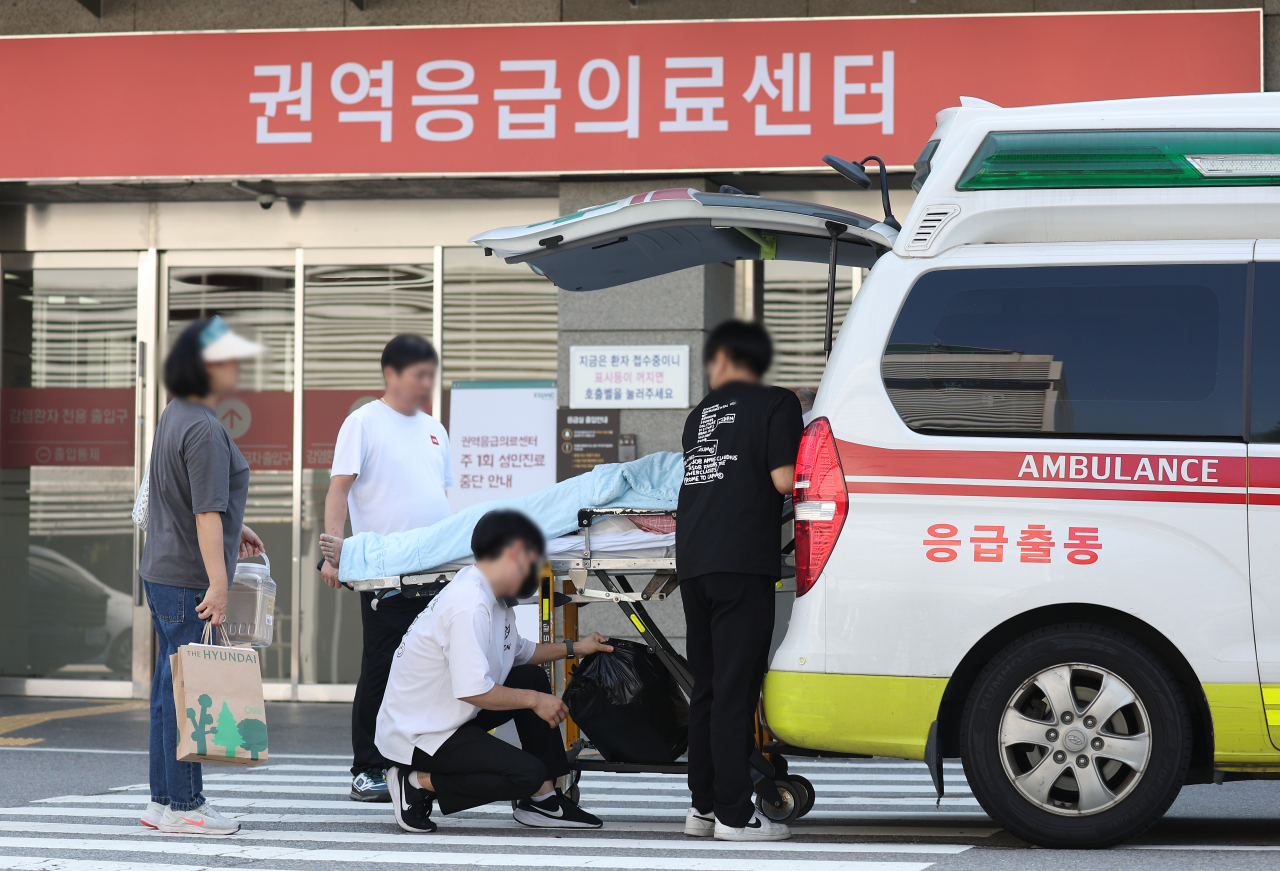 |
A patient is carried out of the emergency medical center of a major hospital in Seoul on Friday. (Yonhap) |
South Korea will use 10 trillion won ($7.6 billion) of health insurance financial reserves by 2027 to reorganize tertiary hospitals to reduce nonessential medical care functions and enhance their critical care, the government unveiled Friday.
Tertiary hospitals operate as general hospitals that provide highly specialized medical services for treating serious diseases under the Medical Services Act.
The government will increase the proportion of severe medical treatment in tertiary hospitals from the current 50 percent to 70 percent by 2027 so that the hospitals can focus more on severe, urgent, and rare diseases, according to the Ministry of Health and Welfare in a briefing on the progress of health care reform at the Government Complex Seoul on Friday.
In addition, due to the limitations of the current classification of "severe" diseases, the project will establish an exception criterion to be considered severe so that patients who should be treated at advanced general hospitals are not marginalized from proper treatment.
General hospital beds will also be reduced by 5 to 15 percent depending on the region and the status of the sickbeds. However, children's beds and emergency beds will remain so essential medical functions can continue while reducing the treatment for mild cases.
A total of 3.3 trillion won fund from the mandatory National Health Insurance Service will be spent each year from 2025 to 2027.
The funds will be in addition to the 10 trillion-won spending package by 2028 to strengthen essential care functions in tertiary hospitals, announced earlier in March.
“While strengthening medical cooperation within the region, we will also support medical cooperation among high-level hospitals outside the region, considering the need for inter-regional medical cooperation, such as transferring patients from Seoul to non-metropolitan areas,” a high-ranking official of the health ministry said in the briefing.
Accordingly, the government will provide 670 billion won to increase the number of intensive care units, which have been under-compensated for their labor. In addition, the government will provide 350 billion won to increase the anesthesia fee for 910 serious surgeries, which are mainly performed at advanced general hospitals.




![[Exclusive] Hyundai Mobis eyes closer ties with BYD](http://res.heraldm.com/phpwas/restmb_idxmake.php?idx=644&simg=/content/image/2024/11/25/20241125050044_0.jpg)
![[Herald Review] 'Gangnam B-Side' combines social realism with masterful suspense, performance](http://res.heraldm.com/phpwas/restmb_idxmake.php?idx=644&simg=/content/image/2024/11/25/20241125050072_0.jpg)

